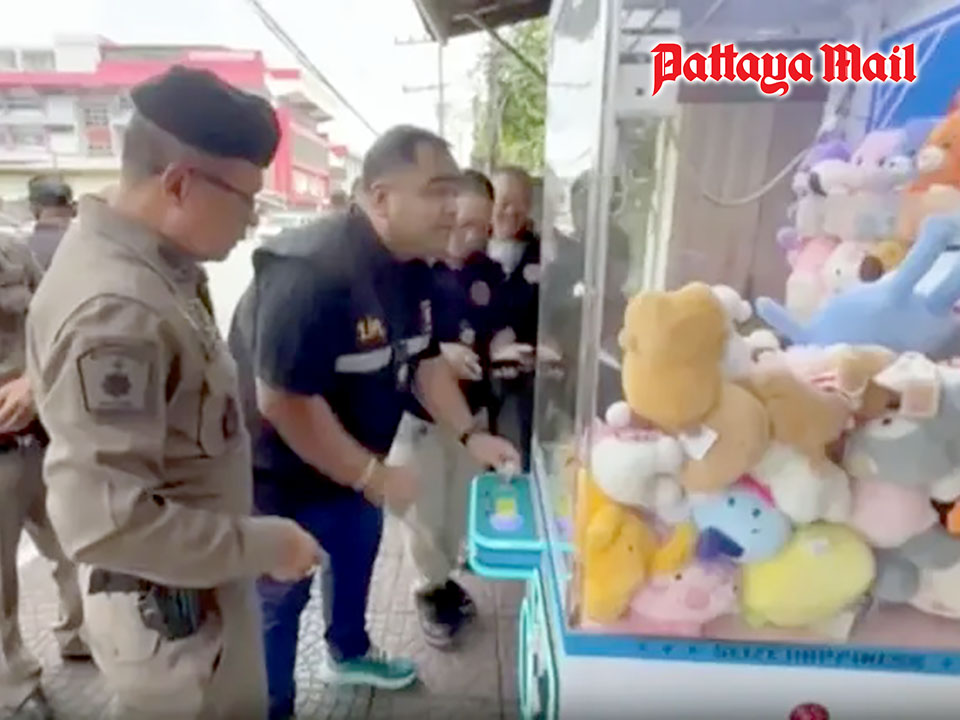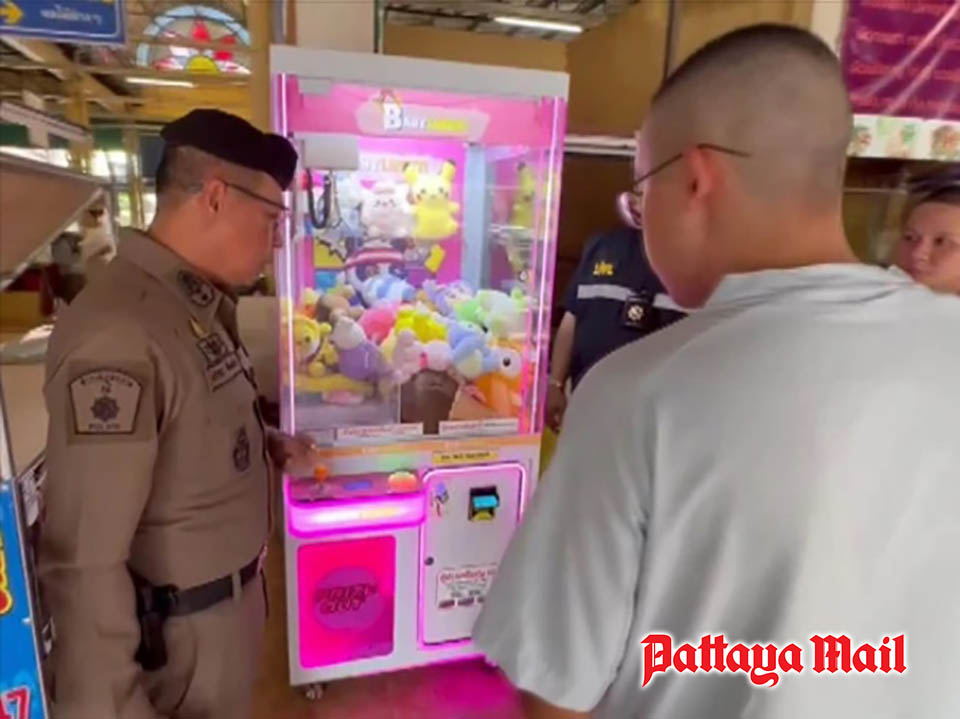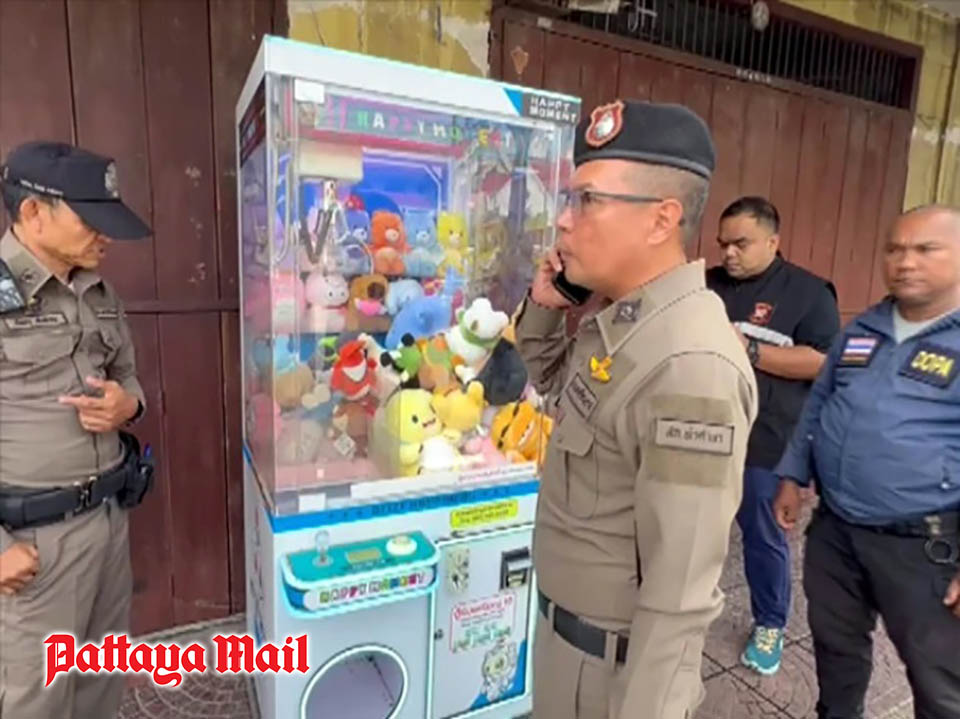
PATTAYA, Thailand – Despite nationwide crackdowns, the growing presence of claw machines – especially near schools and in tourist areas like Pattaya – continues to raise concern among parents, educators, and law enforcement officials. These coin-operated machines, which often lure children with the promise of plush toys, are increasingly being scrutinized for operating as unregulated gambling devices.
In a recent operation in Nakhon Si Thammarat on May 18, police and administrative officers seized numerous claw machines placed along student routes to tutoring centers. Parents had filed complaints that these machines were “siphoning students’ lunch money,” leading to financial strain and addictive behavior among minors.
On May 18, Pol. Lt. Col. Narakorn Iadchuay, acting deputy superintendent of Nakhon Si Thammarat City Police Station, led a coordinated operation with district administrative officers to seize coin-operated claw machines scattered across communities — especially behind schools and along routes students take to evening or weekend classes.
Authorities discovered a large number of these machines both in the city municipality and suburban areas. During the operation, officers found that many of the machines had no owners present, displayed no signage, and had not been properly licensed. As a result, the machines were confiscated and taken to the local police station. If anyone comes forward to claim ownership, they will face legal prosecution.
Under Thailand’s Gambling Act B.E. 2478 (1935), claw machines are classified under Appendix B, item 24, and considered gambling devices that require prior approval from licensed authorities. Offenders risk up to two years in prison or a fine of 2,000 baht – or both. Additionally, concerns remain about the legality of the prizes inside, many of which fail product safety standards or violate intellectual property laws.

So why is it so hard to remove them entirely?
In cities like Pattaya, the answer lies in a combination of unclear enforcement jurisdiction, profit incentives for venue owners, and the machines’ ability to quickly reappear after being removed. Many are installed in privately-owned spaces like arcades, malls, or near convenience stores where inspections are inconsistent. Enforcement can also be undermined by lack of coordination between local governments, the police, and licensing departments.
Even when machines are seized, owners often remain anonymous or return later to install new ones. The low fines under the outdated gambling law offer little deterrence, while regulatory loopholes allow operators to argue that the machines are “skill-based” and not gambling-related.
For now, operations like the one in Nakhon Si Thammarat highlight the government’s intent, but also how deeply embedded and profitable this seemingly harmless form of entertainment has become.











